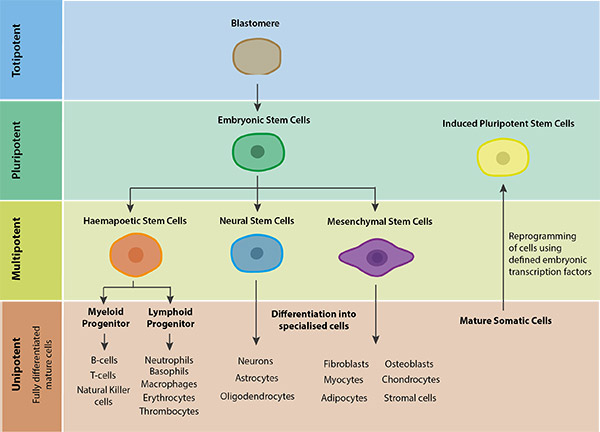Table of Contents

In between 2010 and 2015, there have had to do with 41 scientific tests performed making use of mesenchymal stem cells (MSCs) in heart fixing. A lot of these studies were in the processing of finishing stage II and some were also relocating into phase III. Today, increasingly more professional trials utilizing stem cells like those discovered in cable tissue are being utilized to treat heart disease.
Stem cell exosomes are an advanced therapy for heart health and wellness, supplying effective recovery homes to damaged heart cells. Unlike conventional stem cell treatments, these tiny blisters can improve cardiac repair work, decrease inflammation, and boost heart feature, using an appealing brand-new technique to cardio care.
Stem cell exosomes promote the development of new blood vessels, a process called angiogenesis, which is essential for providing oxygen and nutrients to regrowing heart cells. This enhanced blood circulation sustains the recovery of harmed locations and strengthens the heart's overall feature. Stem cell exosomes help in reducing cell fatality (apoptosis) in the heart after injury, which is crucial for protecting heart function.
Inflammation commonly leads to the advancement of heart condition, leading to additional problems. Stem cell exosomes have anti-inflammatory properties that assist lower swelling in heart tissue.
By decreasing these pens, stem cell exosomes reduce swelling and minimize tissue damage. This decrease in swelling can prevent the progression of cardio conditions. Stem cell exosomes manage the body immune system, stopping it from overreacting and causing more swelling in heart cells. This inflection causes a more well balanced immune feedback, lowering the threat of persistent swelling.
Next-gen support for Heart Failure — what to expect
This reduction in scarring leads to better heart performance and fewer issues. Stem cell exosomes have actually been shown to boost left ventricular function, which is commonly compromised after a cardiac arrest. By supporting the heart's pumping capacity, these exosomes add to better blood circulation and overall cardio health and wellness. Heart failing happens when the heart can no more pump blood efficiently, which brings about a series of health issue.
This can bring about a far better lifestyle and reduced hospital stays for heart failing clients. Stem cell exosomes help enhance weakened heart tissue, making it extra immune to the effects of cardiac arrest. They deliver development variables that improve the structural integrity of the heart, stopping additional degeneration. A more powerful heart is much better able to deal with the demands of day-to-day live and stand up to failure.
They can assess your specific heart condition and identify if this therapy is an appropriate option for you. A professional consultation makes sure that your heart wellness strategy stays safe and reliable.
Discover concerning what stem cell exosome treatment entails, including how the therapy is carried out and what to expect during the procedure. Review the possible advantages and risks of stem cell exosome treatment with your health care supplier.
Stem cell injections for Atherosclerosis with minimal downtime
A detailed evaluation guarantees you make a knowledgeable choice about your heart health. Collaborate with your medical professional to produce a tailored heart health insurance plan that includes stem cell exosome therapy. This plan must outline the timing and frequency of treatments, in addition to any type of corresponding treatments that might boost your heart health and wellness.
This method avoids the complexities and possible dangers of using real-time stem cells. Stem cell exosome therapy is generally taken into consideration secure, with minimal negative effects reported. However, as with any kind of medical treatment, there may be some threats, such as moderate inflammation or discomfort at the injection website. It's essential to review possible side impacts with your medical care carrier prior to starting treatment.

Some clients may discover enhancements in heart function within a few weeks, while others may take much longer. BioRestore in Connecticut offers advanced stem cell exosome treatment to help improve your heart health and total health. This ingenious treatment targets heart cells, decreasing swelling, advertising regeneration, and enhancing recuperation.
A number of sorts of stem cells have been discovered for their capacity in cardiovascular treatment, including: These cells are stemmed from embryos and have the capability to set apart right into any kind of cell type. Their use is restricted due to ethical problems and the risk of teratoma formation. These cells are generated from grown-up cells that are reprogrammed to have pluripotent abilities comparable to ESCs.
MSCs are grown-up stem cells that can be separated from various cells, consisting of bone marrow, fat, and umbilical cord. They have been commonly used in cardio treatment due to their capability to separate into numerous cell kinds and their immunomodulatory buildings. CSCs are a kind of adult stem cell that is resident in the heart.
Breakthroughs in stem cell therapy for Atherosclerosis and real results

The immunogenicity of stem cells can bring about an immune feedback, decreasing their effectiveness and potentially causing adverse results. The massive production of top quality stem cells remains a significant challenge. To get rid of the obstacles and constraints, future r & d in stem cell treatment must concentrate on: Developing methods to boost the survival and engraftment of transplanted stem cells.
Navigation
Latest Posts
Stem cell injections for Arrhythmias — what to expect
Can stem cells help with High Blood Pressure and what patients are saying
Leading providers of stem cell therapy focused on Heart Disease